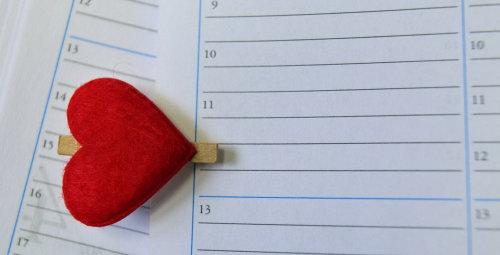Routines are a series of actions done in a particular sequence or pattern. They can take many forms, such as a morning routine, a fitness routine, or a daily
work routine...something you do every day, or on certain days, in a particular order. You may be surprised to know that there are both benefits and drawbacks to routines. Let's explore...
Benefits of Routines:
Consistency: One of the significant advantages of routines is that they provide consistency. By following a routine, we can create a sense of stability and predictability in our lives. Routines help us feel more grounded and less overwhelmed.
Increased Productivity: Routines can lead to increased productivity. When we have a clear plan for what needs to be accomplished and when, we are more likely to stay on task and get things done. It can be easy to become distracted without the structure of a routine.
Improved Health: Routines can have a positive impact on physical health. For example, a regular workout routine can help individuals maintain a healthy weight, build muscle, and improve cardiovascular health. A consistent sleep routine can help individuals get better quality sleep, which can lead to improved mood, energy, and overall health.
Time Management: Routines are also helpful for managing time effectively. By creating a routine for tasks like meal planning, cleaning, and other household chores, we can save time and reduce stress. This can be especially beneficial for those of us who have a lot on our plates, such as parents or anyone
with a demanding job.
Of course, many good things also have drawbacks.
Here are some of the cons of routines...and some ways to avoid those drawbacks:
Boredom: One of the potential drawbacks is that routines can become monotonous
and boring over time, especially if we follow the same routine every day. Over time, the predictability of a routine can lead to a lack of excitement and enthusiasm, which can be demotivating.
This is why it's very important to break out of routine now and then, such as taking a different route to work or visiting a coffee shop other than the one you normally go to.
Stagnation: Another potential drawback is that routines can lead to
stagnation. When we become too comfortable with our routines, we may be less likely to try new things. This can be particularly problematic when it holds back our personal growth.
To avoid stagnation, have something new that you're learning that is contributing to your self-growth, like earning an educational degree, playing piano, working to master a new computer program, or taking swimming lessons.
Rigidity: Routines can also be
rigid and inflexible, which can be challenging for individuals who thrive on spontaneity or who have unpredictable schedules. For instance, a strict workout routine may be difficult to maintain if an individual has to travel frequently or has an unpredictable work schedule.
Be flexible in your routines. If you normally work out at the YMCA and there is no nearby YMCA where you are traveling, opt to go for a jog, or use the hotel's stationary bike.
If you can't clean your kitchen because the repairman is fixing your fridge, get that gardening work done that you've been meaning to do.
Unrealistic Expectations:
Finally, routines can lead to unrealistic expectations. For example, an individual may create a strict morning routine that includes meditation, yoga, and journaling, but find that they aren't sticking to it consistently. This can lead to feelings of failure and frustration.
If you
find yourself not sticking to a routine, then you've likely made that routine too strict or overwhelming for your time and energy level. Try something simple like a 10-minute affirmation when you wake up, or simple stretches throughout your day. Once those smaller choices are habits, you can then increase or expand them.
By the way, we have to get our day-to-day tasks done, but be careful that those TO DOs aren't being done at the expense of never working on our goals or dreams. Routines have to be shaken up to allow time for our life priorities.
By following routines most of the time,
keeping in mind that routines require continuous monitoring and improvement, and breaking from them now and then, we can reap the benefits of our routines without experiencing the drawbacks.












